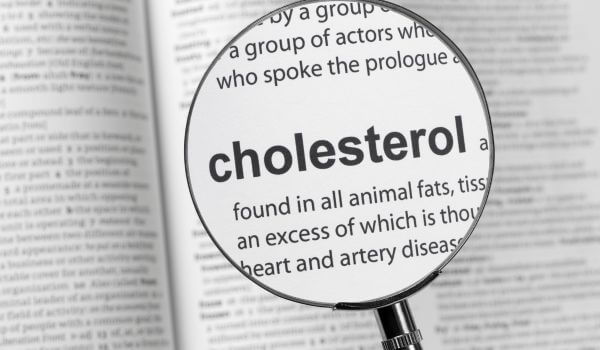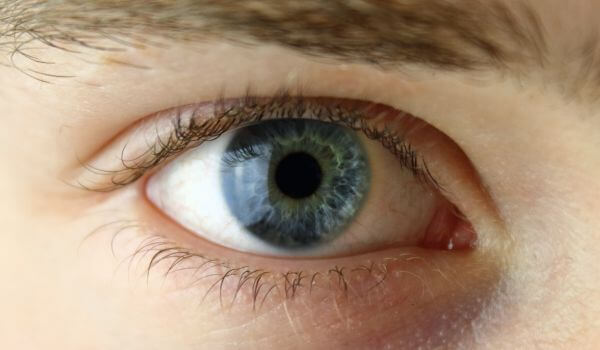 Social anxiety disorder is also referred to as social phobia. It is a mental health condition that causes a person to suffer from a persistent and intense fear of being watched or judged by others in social situations. People with social anxiety disorder are afraid of being evaluated or rejected in ordinary interactions with others. They may experience physical symptoms such as blushing, sweating, trembling, nausea, rapid heartbeat, or difficulty speaking. These symptoms can interfere with their daily functioning and quality of life.
Social anxiety disorder is also referred to as social phobia. It is a mental health condition that causes a person to suffer from a persistent and intense fear of being watched or judged by others in social situations. People with social anxiety disorder are afraid of being evaluated or rejected in ordinary interactions with others. They may experience physical symptoms such as blushing, sweating, trembling, nausea, rapid heartbeat, or difficulty speaking. These symptoms can interfere with their daily functioning and quality of life.
This fear often leads to avoidance of social interactions or significant distress while engaging in social interaction. The onset of social phobia typically occurs around the early teenage years, but it can start as early as eight or nine.
IMPORTANT! If a person suspects they or someone close to them might be suffering from depression as a result of social phobia, it’s essential to seek professional help. This is especially important when a person harbors suicidal or self-harm thoughts. There has been a considerable increase in instances of people asking for help because of their fears of self-harm. An easy-to-remember three-digit 988 Suicide & Crisis Lifeline operates 24/7, allowing people experiencing substance abuse, suicide, or mental health crises free connection with trained counselors.
People with social phobia can use various mechanisms of avoiding direct social contact to cope with their fear and anxiety. For example, they may avoid making direct eye contact with strangers and avoid social interactions where they may have to meet new people or speak in public. Ordinary social interactions, like joining fraternities, dating, attending parties, and eating or drinking in the company of others, are avoided. It may even go so far as dodging shared spaces, such as elevators or public restrooms.
What are the causes of social phobias?
While the exact causes are not entirely understood, a combination of genetic, environmental, and psychological factors are implicated. There is evidence suggesting that the disorder may run in families. If one member of the family has symptoms of social phobia, there is an increased likelihood that others may develop it too. Environmental factors such as child maltreatment, being bullied, facing high levels of emotional stress, or going through traumatic events can play a role. Temperamental qualities like being shy or fearful of negative opinions from others can increase the risk. Fear of negative evaluation and behavioral inhibition are also considered risk factors.
What are the potential effects of social avoidance disorder?
Social phobia can have a substantial impact on a person’s quality of life, leading to social withdrawal, isolation, and decreased overall functioning. It is often seen along with other mental health disorders such as depression, other anxiety disorders, and substance abuse disorders. The disorder can significantly impair educational and occupational achievements and hinder the development of personal relationships.
Diagnosing Social Phobia
The diagnosis of social phobia is based on the Diagnostic and Statistical Manual of Mental Disorders (DSM-5) of the American Psychiatry Association, which was published in 2013. To be diagnosed with Social Anxiety Disorder, a person must have experienced marked fear or anxiety in one or more social situations that could lead to possible scrutiny by others. The level of fear or anxiety must be disproportionate to the actual threat the situation poses. These symptoms must last for at least six months and cause significant distress or functional impairment in the person’s social life, work life, or other area of life.
Treating social phobia
The options for treating social anxiety disorder include psychotherapy, medication, or a combination of these.
Psychotherapy
Psychotherapy, with an experienced therapist, can significantly improve the quality of life for individuals with social anxiety disorder. The choice of therapy should be based on an individual’s specific needs and preferences. A qualified mental health professional can assess the severity of social phobia and tailor the treatment accordingly.
One of the most common therapies for treating social anxiety disorders is Cognitive Behavioral Therapy (CBT). CBT focuses on identifying, understanding, and changing thinking and behavior patterns. It can be conducted in individual or group settings. CBT aims to teach different ways of thinking, behaving, and reacting to everyday situations. It helps people with these conditions to identify the negative thought patterns that contribute to their social anxiety. There are several types of CBT, which would be chosen according to the patient’s specific problem. Amongst these are Exposure Therapy, Cognitive Restructuring, Skill Training, Mindfulness-Based Cognitive Therapy (MBCT), and Dialectical Behavior Therapy (DBT).
Psychodynamic Therapy focuses on exploring past experiences and emotional conflicts that might contribute to social anxiety. It’s less structured than CBT and more focused on exploration and insight.
Group therapy provides a supportive environment where individuals can practice social skills and receive peer feedback. Skill-building groups focus specifically on developing social skills and coping strategies.
Acceptance and Commitment Therapy (ACT) is a newer treatment option for social anxiety disorder. ACT encourages individuals to coexist with their thoughts and emotions rather than trying to avoid, alter, or deny them. It uses positive reinforcement strategies such as mindfulness and goal setting to reduce any feelings of discomfort and anxiety while pursuing their values and goals.
While these behavior therapy options have been proven to work for different types of social phobias, finding the right one may require the involvement of a mental health professional. Alongside professional treatment, individuals can adopt particular lifestyles and home remedies to manage symptoms. Regular physical exercise, sufficient sleep, a healthy diet, and avoidance of alcohol and caffeine are recommended. Gradually participating in social situations, learning stress-reduction skills, and practicing relaxation techniques can also help manage anxiety.
Medications
Several options for medication, mainly when used in conjunction with one or more of the psychotherapies, can also be effective. The main effect of these medications is controlling neurotransmitters like serotonin and norepinephrine in the brain. These chemical messengers play significant roles in regulating mood and behavior, and keeping them balanced is essential for maintaining mental health.
Serotonin is also called the ‘feel-good’ neurotransmitter. It can influence every part of the body, from emotions to motor skills. It is a crucial hormone that stabilizes mood, feelings of well-being, and happiness. Serotonin also is involved in patterns of sleep, eating, and digestion.
Some of the most commonly used medications for social phobia are:
- SSRIs (selective serotonin reuptake inhibitors) that block the reabsorption of serotonin. They work with both depression and anxiety disorders. The most commonly prescribed SSRIs are Elavil (amitriptyline), Prozac (fluoxetine), Zoloft (sertraline), Celexa (citalopram), and Paxil (paroxetine). They are considered safer, having fewer side effects than older antidepressants.
- SNRIs (serotonin-norepinephrine reuptake inhibitors) block the reabsorption of both norepinephrine and serotonin. The most frequently prescribed medications in these categories are Cymbalta (duloxetine) and Effexor (venlafaxine). They are effective for major depression and certain types of anxiety disorders.
- Benzodiazepines enhance the effect of gamma-aminobutyric acid (GABA), leading to sedative and anti-anxiety effects. Benzodiazepines are controlled in Schedule IV of the Controlled Substances Act, and we do not sell them.
- Beta-blockers block beta receptors of noradrenaline and adrenaline, which are produced naturally by the body as the “fight or flight” hormone. The FDA has not approved beta-blockers for the treatment of anxiety, but some doctors do prescribe them off-label.
- Atypical antipsychotics inhibit receptors on the dopamine (DA) pathway in the prefrontal cortex and block the norepinephrine transporter (NET). FDA has only approved these medications for conditions like schizophrenia, bipolar disorder, and other psychotic conditions, but there is growing interest in their off-label use for anxiety.
- Monoamine oxidase inhibitors (MAOIs) block the enzymes that break down serotonin, norepinephrine, and dopamine. MAOIs are primarily prescribed to treat depression, but they can also be prescribed to address anxiety symptoms.
Medications like these can also have side effects. They may not work for everyone, so it is essential to consult with a doctor before starting any course of treatment with them.
What is the outlook for someone with social anxiety disorder?
With appropriate treatment in a combination of professional therapy, medication, lifestyle changes, and supportive measures, most people with social phobia can experience significant improvements. For some, it may need long-term therapy or medication, but most people can manage their symptoms effectively and lead fulfilling lives. Early intervention is crucial in preventing the development of more severe conditions, such as major depression or substance use disorders.
Frequently asked questions
What do people think about social anxiety disorder?
People may have different opinions and attitudes. Some people may think that social anxiety disorder is a real and serious mental illness that requires professional help and support. In contrast, others may think it is an expected reaction to stressful situations that the person can overcome.
The way other people think about social anxiety disorder can affect how people with the condition feel about themselves. Positive and supportive attitudes can help people with social anxiety disorder feel more understood, valued, and hopeful. In contrast, negative and unsupportive attitudes can make them feel more isolated, ashamed, and hopeless.
Is social anxiety one of the most severe mental illnesses?
There is no definitive answer to this question, as different mental illnesses can have different impacts and challenges for different people. However, some possible ways to compare and evaluate the severity of mental illnesses are:
- Social anxiety disorder is one of the most common anxiety disorders, but other mental illnesses, such as depression, bipolar disorder, schizophrenia, or substance use disorders, do have higher rates.
- Social anxiety disorder is one of the most disabling anxiety disorders, ranking in the top ten of all mental and substance use disorders in terms of years lived with disability (YLDs).
- Social anxiety disorder may increase the risk of suicide, cardiovascular disease, or other physical or mental health problems.
How common is social anxiety disorder?
Social anxiety disorder was reported by the World Mental Health (WMH) Survey to affect about 7% of the global population in 2017. However, the prevalence of social anxiety disorder may vary depending on the region, country, culture, age, gender, or other factors. It ranged from 0.5% in Taiwan to 8.8% in the United States.
Can I join the military with a social anxiety disorder?
The military takes into account various types of anxiety disorders, including social anxiety disorder. Service eligibility will be assessed based on the symptoms’ specific type and stability. One of the most important factors would be how severe the symptoms are and whether they significantly impair a recruit’s ability to function in a high-stress environment. A social anxiety disorder may be considered a mental disorder that could affect a person’s communication, teamwork, leadership, or stress management skills, which are essential for military service, in which case it may be necessary to receive a waiver for an anxiety disorder, allowing a person to join the military despite the condition.
What is Social anxiety? And is it a real disorder?
Social anxiety is a term that refers to an intense and persistent fear of being judged, evaluated, or rejected by others in social or performance situations. This fear can cause severe anxiety, avoidance, and impairment in various aspects of life, such as work, school, relationships, or health.
Is there such a thing as a social anxiety attack?
There is no official term or diagnosis for a social anxiety attack. Some people may use this expression to describe a severe episode of anxiety or panic that occurs in a social situation, such as giving a speech, attending a party, or having a conversation. A social anxiety attack can involve physical and psychological symptoms, such as trembling, sweating, nausea, racing heart, shortness of breath, dizziness, or fear of losing control. A social anxiety attack can be very distressing and debilitating, and it can affect a person’s confidence and self-esteem.
What are the most common anxiety disorders?
According to a report in 2019, anxiety disorders are the world’s most common mental disorders, affecting over 300 million people. There are different types of anxiety disorders. Some may be more common than others. Some of the most common anxiety disorders include:
- Generalized anxiety disorder (GAD) is a chronic condition that causes persistent and excessive worry about various aspects of life. People with GAD may have trouble sleeping, concentrating, or relaxing and may experience physical symptoms such as fatigue, muscle tension, or headaches.
- Social anxiety disorder (also called social phobia) is a condition that causes intense fear and anxiety of being judged, evaluated, or rejected by others in social or performance situations. People with this disorder avoid these situations or only endure them with extreme discomfort. Physical symptoms include blushing, sweating, trembling, or nausea.
- Panic disorder is a condition that causes recurrent and unexpected panic attacks, which are sudden and intense episodes of fear and anxiety.
- Specific phobias are irrational and excessive fears of specific objects or situations, such as spiders, heights, or flying, that usually pose little or no actual danger but cause significant anxiety and distress.
Are there any natural treatments for adult anxiety disorder?
Some natural treatments may help with adult anxiety disorder, such as herbal remedies, relaxation techniques, lifestyle changes, or dietary supplements. However, the effectiveness and safety of these treatments are not well-established. They may have side effects or interactions with other medications. Therefore, it is essential to consult with your doctor before using any natural treatment for anxiety. It should also be followed up with professional advice and a treatment plan that suits the person’s own condition.
How bad can social anxiety get?
Social phobia can cause severe symptoms for some people, as it can cause anxiety, avoidance, and impairment in various aspects of life, such as work, school, relationships, or health. Social anxiety can also increase the risk of other mental health problems, such as depression, substance abuse, or suicide.
Can social anxiety (social phobia) cause homicidal ideation?
Homicidal ideation is the thought or desire to kill someone else. Experts in this field believe that social anxiety disorder (social phobia) does not cause homicidal ideation. Social anxiety is not a violent or aggressive impulse. People with social anxiety are more likely to harm themselves than others. This is because they may experience low self-esteem, negative self-image, or suicidal thoughts.
How does a doctor diagnose social anxiety?
A doctor can diagnose social anxiety disorder by thoroughly evaluating a person’s medical history and observing the behaviors the patient reports or that family members have seen. How the person functions in a social environment is also considered. The doctor may use various tools, such as questionnaires, interviews, or tests, to assess the severity and impact of the condition. It’s essential to rule out other possible causes or conditions. The doctor will usually use the criteria of DSM-5, which is the standard manual for classifying mental disorders.
Is social anxiety a lifelong problem for people?
Social anxiety disorder is not necessarily a lifelong problem for people. It can be treated and managed with medication, psychotherapy, or a combination of both. However, social anxiety can be a chronic and recurrent condition that may vary in severity and impact over time. This depends on various factors, such as stress, life events, or coping skills. Some people may experience social anxiety only in certain situations or periods of their lives. Others may struggle with it for many years or decades.
















